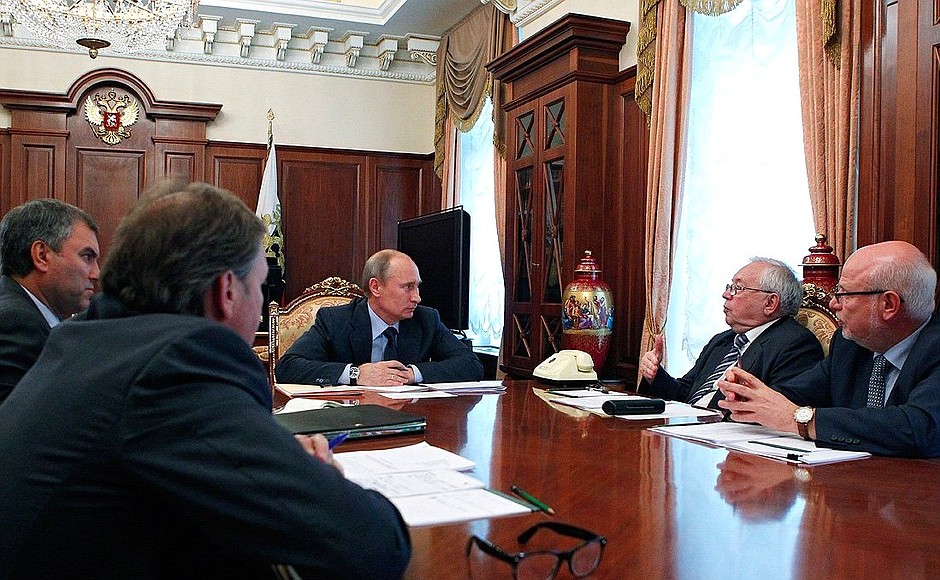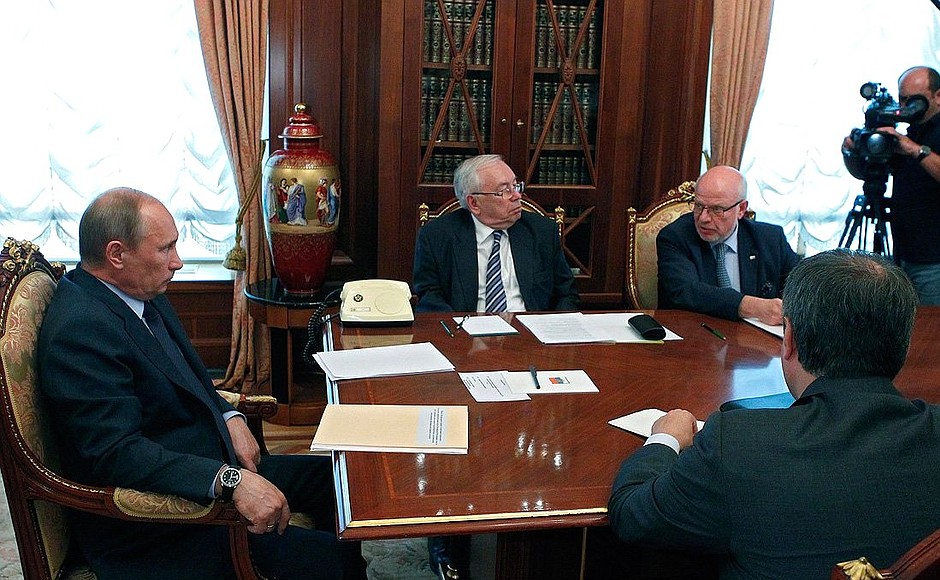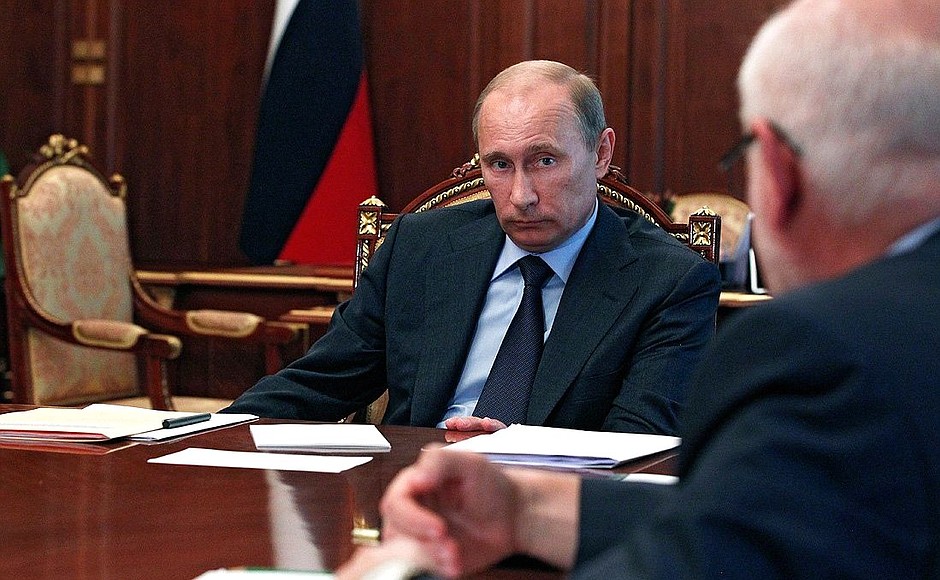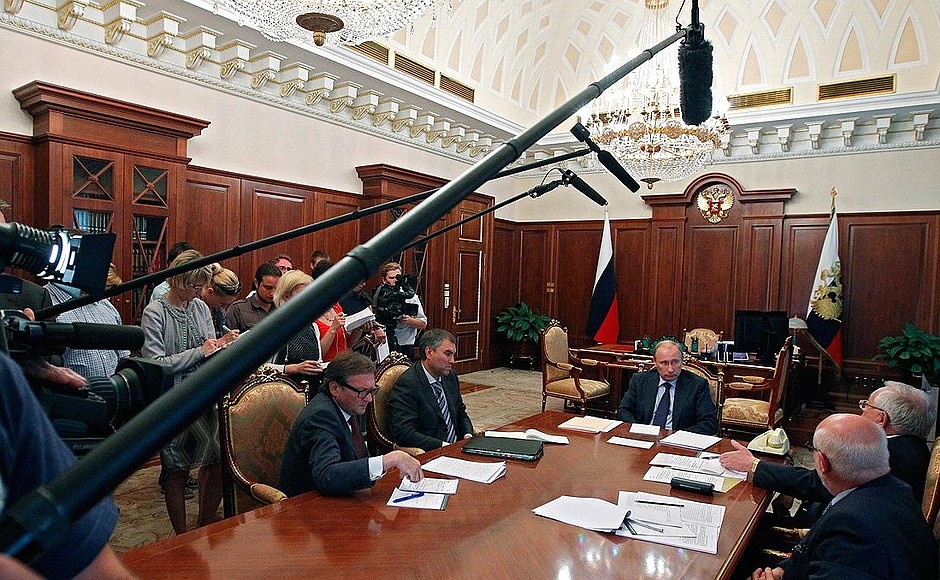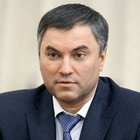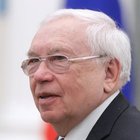The meeting addressed draft laws under consideration by the State Duma aimed at amending legislation regulating the activities of nongovernmental organisations and amending the Criminal Code and other legislative acts to increase liability for violating the constitutional rights of individuals to protection of their honour and dignity.
Following the meeting the President will submit his suggestions on adjustments to the draft laws under discussion to the State Duma.
The meeting was also attended by First Deputy Chief of Staff of the Presidential Executive Office Vyacheslav Volodin.
* * *
President of Russia Vladimir Putin: Colleagues,
I have asked you to meet with me today in order to discuss two draft laws that have elicited some rather energetic discussion among the public. Mr Fedotov and I had the chance to discuss these issues on the phone, and I spoke with Mr Lukin and Mr Titov in person at recent meetings.
The issues at hand concern two draft laws. The first addresses the possibility of classifying all aspects pertaining to so-called slander as criminal offences. The second draft law concerns the work of nongovernmental organisations.
In the case of the first draft law, and indeed, the second, I generally agree with the ideology of their authors; nevertheless, I also want to draw attention to what has been said by the people present here, as well as what I am seeing in the media.
I just want to point out that in many nations’ laws, the first subject, the so-called slander in the broad sense of that word, is regulated in great detail. But what I wanted to note for you to take into account is the fact that such laws do not only concern, first and foremost, protecting the interests of those engaged in political activities, although they are included as well. Such laws also apply to business community, business people. They concern media and culture professionals in the broad sense of that word, and not just people involved in the so-called show business. This also concerns Russian scientists.
In one way or another, people from these communities face this problem in various spheres. I find talking about this sad, but if we do not have sufficient personal moral and ethical limits of some kind, then there shuold be legislative limits, and perhaps the moral and ethical ones will emerge on the basis of the legislative rules.
I asked comparative law specialists to present a report on this matter. German legislation regulates various aspects of the issue and the strictest sanctions range from three months to five years of imprisonment. Harm to state symbols leads to imprisonment. There are also other examples of fairly serious sanctions. In the UK such offences are punished by imprisonment. It is the same in the United States of America. In Canada, everything is regulated in great detail. In other words, in well-developed law systems, these provisions not only exist but are also quite functional.
Certainly, we must proceed based on the realities in our own situation and the respective provisions of our national legislation in previous years and today. Of course, we must certainly avoid any dual interpretation of the legislation and the possibility of any kind of manipulation of those legal provisions.
As for nongovernmental organisations, based on what you told me in our meetings and on the phone, as well as what I have seen and read in the media, there really are some issues that require particular attention from us. I have specifically asked you to meet with me today because the legislators plan to complete work on these legislative acts very soon.
If we find through an absolutely open and constructive discussion today that these draft laws really should be improved, I want to assure you that I am prepared to go as far as personally asking deputies to make the corresponding adjustments.
As far as nongovernmental organisations are concerned, I agree with colleagues who believe that if we are introducing any stricter or softer framework pertaining to the operation of these organisations, then naturally, we must increase our own funding for the activities of these organisations. I think it should be increased at least three-fold. I will ask the Government to take this into account in the budget – in other words, to increase funding from one billion [$32 million] to three billion rubles.
<…>
